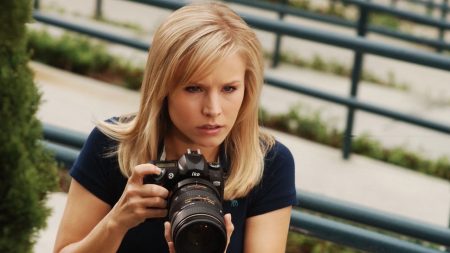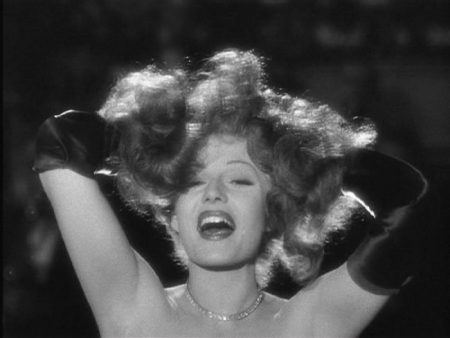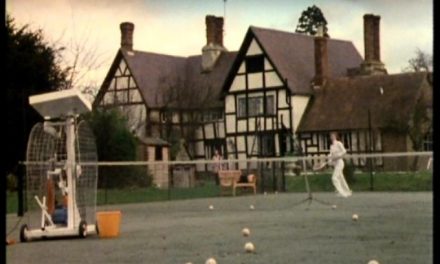Given the opportunity to talk about Veronica Mars, you’re going to have to stop me by the third hour. I’ll thrust my DVD boxset onto anyone and everyone. I was jumping out of my seat at the announcement of season 4, and then quietly pretending it never happened.
Veronica (Kristen Bell) has long been held as a third-wave feminist hero in academic scholarship. Much has been written about Veronica’s character as a teenage girl and the more traditional hard-boiled, Raymond Chandler-esque male detective. Vaughn makes a neat comparison between Veronica’s pessimistic voice over and Sarah Jessica Parker from Sex and the City (2006, p. 36). The duality of the character, half in one genre and half in the other, is part of the immense pleasure of the series. The road less talked about is her counterpart, Logan (Jason Dohring). On the surface, he is your standard bad boy, getting framed for murders and committing morally reprehensible yet ultimately forgivable sins. Veronica quips “I think when they start shipping your girlfriends off, you are officially a bad boy,” to which they high five (“Plan B” S2E17). One more – possibly my favourite quote – comes when Veronica is going to class, which she calls “Violence in Early Adolescence.” Logan replies, “Need me to autograph your textbook?” (“Un-American Graffiti” S3E16).
The term Homme Fatale has been criminally underused. Maybe because there are so few examples. But if anything describes Logan’s character and role within the show, it is Homme Fatale – the reverse, of course, of Femme Fatale, coined for the temptresses who populated 1940’s noir movies. Veronica Mars calls Logan a bad boy but it’s pretty clear the show has higher ambitions. If Veronica is the hard-boiled detective – with all their usual vices and prejudices – he is so much more within the genre mashup. The sheer reversal is delightful. It’s so much fun even out of context to turn such an ingrained cultural caricature upside down. Being both a huge feminist and fan of noir, I’m predisposed to like reversing traditional gender roles in such a bold manner.
Daniel Wack talks more about this in “Noir Neptune: Genre and Gender Bending in Veronica Mars” (2014) (which I loved and got me thinking about all this.) The nature of Veronica and Logan meant they flirted between tempestuous and dangerous, their on/off dynamic attracting many fans to fund the 2014 movie and continue their famously “epic” relationship (Logan’s speech in S2E20 “Look Who’s Stalking” summarizes their dynamic: “spanning years and continents, lives ruined, bloodshed,” and is oft quoted around the internet). The last scene they have together in the original series is such a great example: “You’re gunna die,” says the boy Logan has just beaten to the ground. Logan replies, grin on his face and a glint in his eye, “Yeah, someday.” Veronica flushes and smirks, begrudgingly attracted to his violent tendencies, perhaps the most sexual exchange on a teen network show in 2007 (“The Bitch is Back” S3E20). Classically, the detective struggles to resist the temptation of the fatale – just too mysterious! too dangerous! – but Veronica eventually succumbs (they get together in the movie). It’s happened in noir history, I’ll admit, my favourite being Gilda (1946). But it’s rare; Logan is not punished for his moral and sexual transgressions. The addition of the new season means there are some new conversations to have about both aspects.
Okay, fine, I’ll talk about season four. Generally, the season wasn’t received too well by the press or the fans. At the time, headlines like “How ‘Veronica Mars’ Season 4 Fails The Show’s Most Interesting Relationship Dynamic To Date” or “‘Veronica Mars’ Season 4 Doesn’t Understand What It Means to Be Strong” circulated the internet. I saw the negative reactions from fans on various websites (mainly condemnations on Tumblr and Youtube rants) before I even saw the new season myself. The majority of the backlash came from the season’s ending twist; just as Logan and Veronica tie the knot, he meets an untimely end from a car bomb (Ah!) put there by the villain of the season. Creator Rob Thomas “knew this twist would be controversial” which is why he logged off the internet when it came out. In hindsight, this hilarious move reminds me of Benioff and Weiss’ plan to be “very drunk and very far from the internet” when the series finale of Game of Thrones aired which makes me think they all knew they’d fubbed it. In Daniel Wack’s essay he notices that because TV is an open medium we don’t know whether the detective can have a happy ending like we do in film (p. 67). It seems the new season has answered that question!
However you feel about the twist as a reflection of feminist issues (my personal opinion is it gives off a bad case of women-can’t-have-everything), it does follow suit to the spirit of the fatale. It just follows a rather antiquated way of looking at love and relationships. The femme fatales of old who suffered were always sympathetic to me, no matter the societal imperative to cage them at the time, and it seems a shame to repeat it seventy years later, even when Logan does his best to grow and we’re no longer chained to the black and white morality of the Hollywood Hays Code. Perhaps there were more creative ways to follow in the footsteps of noir. The original show seemed to balance homage and modernity without sacrificing to either. The aforementioned Indiewire article by Libby Hill is scathing, and so are the comments. “But in Season 4, Logan is no longer fatale. Logan is fully reformed. (…) So Logan Echolls had to die.” I understand this viewpoint. But the beauty of Veronica Mars was in melding the old with the new. And hey, sometimes things ended alright for the fatale! Again, Gilda?
The current hope is that if there is a new season, it will be revealed that Logan was thoughtful enough to duck out of the way and save my family and friends from my reinvigorated rages about the unfairness of it all. Jackie Stancil quite nicely summarises the majority of responses to killing off such a fan favourite in her comment: “No Logan – No way.” I’m interested to see scholarship on season four in addition to the original series. If nothing else, it certainly makes a statement about change. Regardless, he’s a superlative character, a clever send up of an iconic archetype, and next time you’re looking for something to watch – pick Veronica Mars, pay attention to Logan, and be surprised.
Rebecca Pearce is an MA student at Birkbeck, University of London. She likes to write about shows she loves to anyone who’ll listen.
Works Cited
Vaughn, E. ( 2006) “Neptune Noir: “Veronica Mars: Girl. Detective.” In Thomas, R. (2006) (ed) Neptune Noir: Unauthorized Investigations into Veronica Mars. Dallas: BenBella Books, Inc.
Wack, D. (2014) “Noir Neptune: Genre and Gender Bending in Veronica Mars” in Dunn, G. A (2014) (ed) Veronica Mars and Philosophy: Investing the Mysteries of Life (Which is a Bitch Until You Die). West Sussex: John Wiley & Sons.









Goodness! Rebecca – that is *precisely* the kind of opening paragraph that just grabs my attention and sucks me in because I can relate to it. I’ve never seen “Veronica Mars” at all because it never popped up on the platforms I had access to at the time, but from your description of it I had a quick look at what it’s about and I sounds like it might be Our Kind Of Thing. As such, I’ll add it to the increasingly long list of things which my wife and I should take a look at because they may well be Our Sort Of Thing.
I wish that there was more time to view all these things, but where I don’t have the time to read I try to find the time to at least read. And this is just the kind of thing that I like to read because it’s telling me about something new.
And delighted that you like to write about shows that you love. It’s a *lot* of fun and I hope that you get to do a lot more of it.
All the best
Andrew